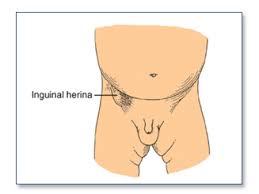Inguinal hernias, while common, can cause discomfort, pain, and pose the risk of complications if left untreated. Fortunately, the benefits of inguinal hernia repair are substantial, offering individuals the opportunity to regain comfort, prevent complications, and improve their overall quality of life. This article explores the various advantages of undergoing inguinal hernia repair, whether through surgical intervention or conservative management.
1. Relief from Discomfort and Pain:
- One of the primary benefits of inguinal hernia repair is the alleviation of discomfort and pain associated with the hernia. The protrusion of abdominal contents through the weakened area can cause aching, burning, or sharp pain, which is significantly reduced or eliminated after successful repair.
2. Prevention of Complications:
- Inguinal hernias have the potential to lead to complications, such as incarceration or strangulation, where the herniated contents become trapped, compromising blood supply. Timely repair helps prevent these severe complications, safeguarding an individual's health.
3. Improved Physical Function:
- With the resolution of the hernia, individuals often experience improved physical function and mobility. Daily activities that may have been hindered or uncomfortable due to the hernia become more manageable post-repair, contributing to an enhanced quality of life.

4. Enhanced Comfort during Daily Activities:
- The discomfort associated with inguinal hernias can make routine activities, such as walking, standing, or bending, challenging. Hernia repair restores comfort, allowing individuals to engage in their daily tasks without the hindrance of pain or physical limitations.
5. Minimization of Recurrence Risk:
- Surgical repair, especially with the use of mesh reinforcement, significantly minimizes the risk of hernia recurrence. This long-term benefit provides individuals with the confidence that their hernia has been effectively addressed, reducing the likelihood of future complications.
6. Choice of Minimally Invasive Techniques:
- Advances in medical technology have introduced minimally invasive techniques, such as laparoscopic or robotic-assisted surgery, for inguinal hernia repair. These approaches offer benefits such as smaller incisions, reduced postoperative pain, and quicker recovery times compared to traditional open surgery.
7. Quicker Recovery and Return to Normal Activities:
- Inguinal hernia repair, especially when performed using minimally invasive techniques, often allows for a quicker recovery. Patients can typically resume normal activities, including work and physical exercise, within a few weeks, contributing to a faster return to their regular lifestyle.
8. Personalized Treatment Plans:
- Healthcare professionals tailor treatment plans for inguinal hernias to the individual needs and preferences of patients. This personalized approach ensures that the chosen intervention aligns with the patient's overall health, lifestyle, and treatment goals.
9. Psychological Well-being:
- Addressing an inguinal hernia can positively impact an individual's mental and emotional well-being. The resolution of physical discomfort and the prevention of complications contribute to an overall sense of relief and improved quality of life.
Conclusion:
The benefits of inguinal hernia repair extend beyond the physical realm, encompassing improved comfort, prevention of complications, and an enhanced overall quality of life. Whether opting for surgical intervention or conservative management, individuals can experience these advantages, reinforcing the importance of addressing inguinal hernias promptly and effectively. Seeking guidance from healthcare professionals and actively participating in decision-making processes contribute to optimal outcomes, allowing individuals to regain control of their health and well-being.
